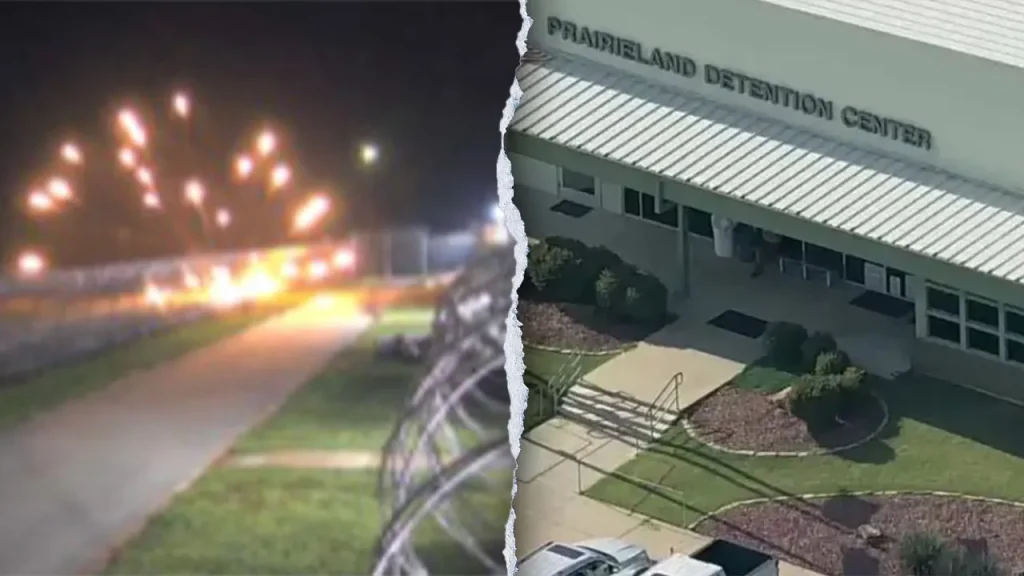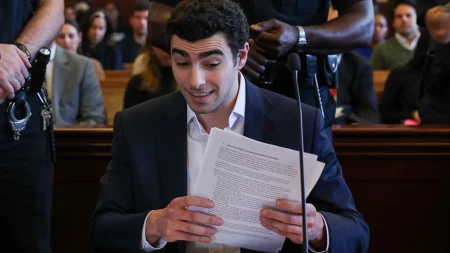Justice Department Indicts Antifa Members for Attempted Murder and Terrorism
In a sweeping federal action, nine alleged members of a North Texas Antifa cell have been indicted on multiple charges including attempted murder of a police officer, while seven additional individuals face terrorism-related charges. The case represents what officials are calling a significant milestone in addressing politically motivated violence against law enforcement and government facilities.
The charges stem from a July 4th attack on the Prairieland Detention Center in Alvarado, Texas, which houses immigrants awaiting deportation proceedings. According to the Justice Department, the group arrived at the facility dressed in what’s commonly known as “black bloc” attire—dark clothing with face coverings designed to conceal identities—and began launching fireworks at the building while vandalizing vehicles and a guard shack. When an Alvarado police officer responded to calls for help from correctional officers, the situation escalated dramatically. Benjamin Song, described by prosecutors as a leader within the group, allegedly called for others to “get to the rifles” before opening fire and striking the responding officer in the neck. The officer survived, while Song fled the scene but was later apprehended on July 15.
The Justice Department’s 12-count indictment presents a troubling picture of alleged pre-planning and coordination. Prosecutors claim the group acquired more than 50 firearms in the Dallas-Fort Worth area before the attack and employed sophisticated operational security measures, including encrypted messaging apps with auto-delete functions and the use of code names to conceal their identities. The group allegedly conducted reconnaissance of the facility and coordinated what items to bring, including firearms, medical supplies, and fireworks. Those indicted include Cameron Arnold, Zachary Evetts, Benjamin Song, Savanna Batten, Bradford Morris, Maricela Rueda, Elizabeth Soto, Ines Soto, and Daniel Rolando Sanchez-Estrada, with charges ranging from rioting with intent to commit violence to attempted murder of officers.
Acting U.S. Attorney Nancy Larson noted the historic nature of the case, calling it “the first indictment in the country against a group of violent Antifa cell members.” The additional seven individuals charged—Nathan Baumann, Joy Gibson, Susan Kent, Rebecca Morgan, Lynette Sharp, John Thomas, and previously charged Seth Sikes—face counts of providing material support to terrorists. The indictment characterizes the North Texas Antifa cell as part of a larger militant enterprise comprised of networks calling for the overthrow of the U.S. government and law enforcement, language that signals the Justice Department is treating the case with the seriousness usually reserved for international terrorism organizations.
FBI Director Kash Patel delivered a stark warning about the government’s approach to such cases, stating: “Anyone who targets law enforcement or uses violence to advance an anarchist agenda will face the full weight of the federal government. These are domestic terrorists, and under President Trump’s leadership, we’re finding them and bringing them to justice.” Attorney General Pam Bondi echoed this sentiment, comparing the prosecution strategy to that used against international criminal organizations like Tren de Aragua and MS-13, suggesting similar cases may follow as part of a broader effort to “dismantle Antifa.”
The case marks a significant escalation in how federal authorities are approaching politically motivated violence from left-wing extremists. While previous administrations have prosecuted individuals for specific criminal acts during protests, this case represents a more comprehensive approach that treats alleged Antifa members as part of an organized terrorist structure rather than as isolated actors. This shift in prosecutorial strategy has significant implications for how domestic extremism cases may be handled in the future, potentially applying terrorism frameworks more broadly to political violence from various ideological backgrounds.
The nine defendants who were indicted are scheduled to appear in federal court for arraignment on December 3, where they will formally respond to the charges against them. If convicted on the most serious charges, including attempted murder of officers and using explosives during a crime of violence, the defendants could face decades in federal prison. The case is likely to draw significant attention not only for its legal implications but also for what it reveals about the government’s evolving approach to domestic extremism and political violence in an increasingly polarized national climate.








